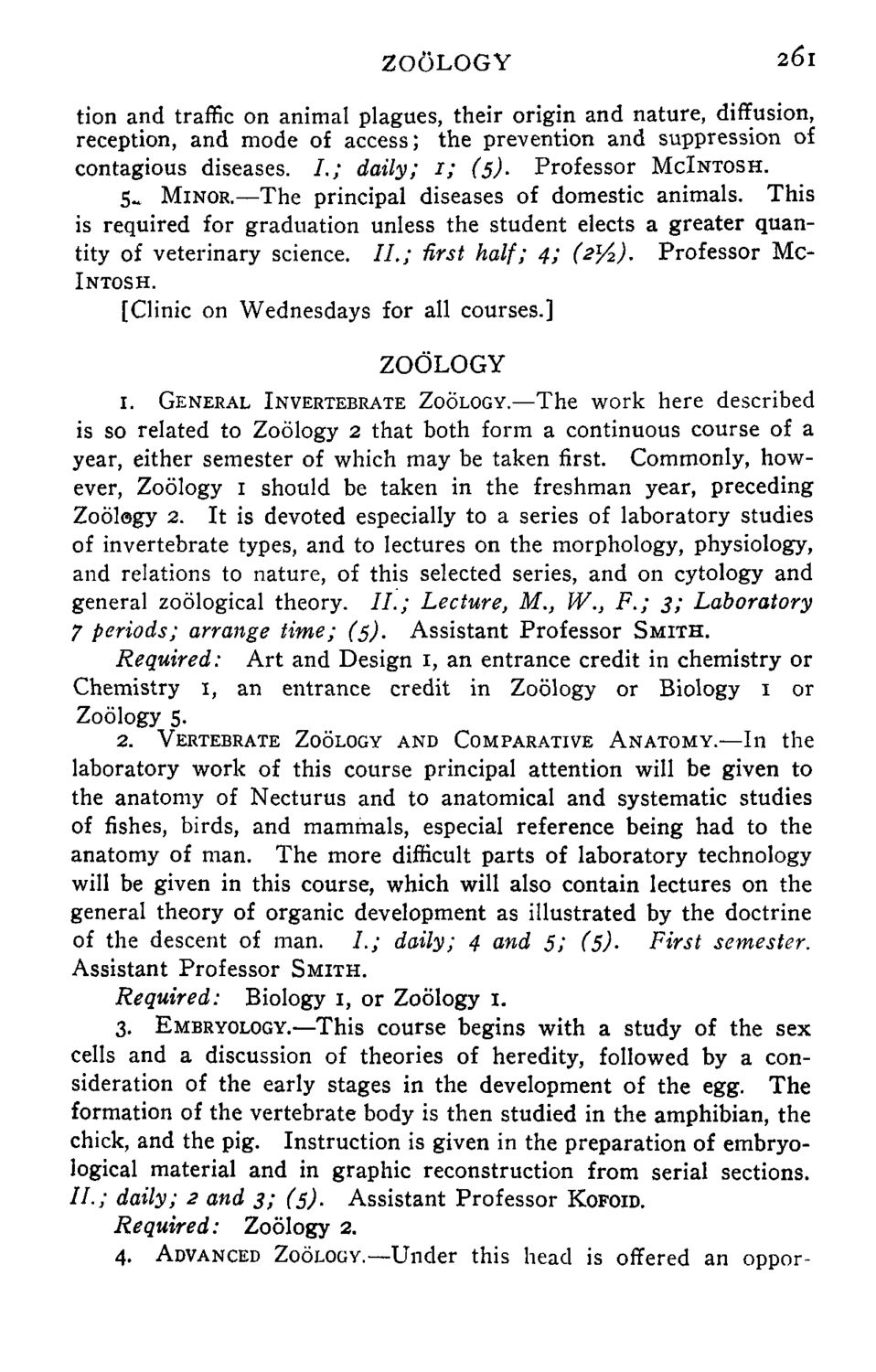| |
| |
Caption: Course Catalog - 1899-1900
This is a reduced-resolution page image for fast online browsing.

EXTRACTED TEXT FROM PAGE:
ZOOLOGY 261 tion and traffic on animal plagues, their origin and nature, diffusion, reception, and mode of access; the prevention and suppression of contagious diseases. / . ; daily; 1; (5). Professor MCINTOSH. S_ MINOR.—The principal diseases of domestic animals. This is required for graduation unless the student elects a greater quantity of veterinary science. / / . ; first half; 4; (zVz). Professor MCINTOSH. [Clinic on Wednesdays for all courses.] ZOOLOGY 1. GENERAL INVERTEBRATE ZOOLOGY.—The work here described is so related to Zoology 2 that both form a continuous course of a year, either semester of which may be taken first. Commonly, however, Zoology 1 should be taken in the freshman year, preceding Zoology 2. It is devoted especially to a series of laboratory studies of invertebrate types, and to lectures on the morphology, physiology, and relations to nature, of this selected series, and on cytology and general zoological theory. / / . ; Lecture, M., IV., F.; 3; Laboratory 7 periods; arrange time; (5). Assistant Professor SMITH. Required: Art and Design 1, an entrance credit in chemistry or Chemistry 1, an entrance credit in Zoology or Biology 1 or Zoology 5. 2. VERTEBRATE ZOOLOGY AND COMPARATIVE ANATOMY.—In the laboratory work of this course principal attention will be given to the anatomy of Necturus and to anatomical and systematic studies of fishes, birds, and mammals, especial reference being had to the anatomy of man. The more difficult parts of laboratory technology will be given in this course, which will also contain lectures on the general theory of organic development as illustrated by the doctrine of the descent of man. / . ; daily; 4 and 5; (5). First semester. Assistant Professor SMITH. Required: Biology 1, or Zoology I. 3. EMBRYOLOGY.—This course begins with a study of the sex cells and a discussion of theories of heredity, followed by a consideration of the early stages in the development of the egg. The formation of the vertebrate body is then studied in the amphibian, the chick, and the pig. Instruction is given in the preparation of embryological material and in graphic reconstruction from serial sections. //.; daily; 2 and 3; (5). Assistant Professor KOFOID. Required: Zoology 2. 4. ADVANCED ZOOLOGY.—Under this head is offered an oppor-
| |